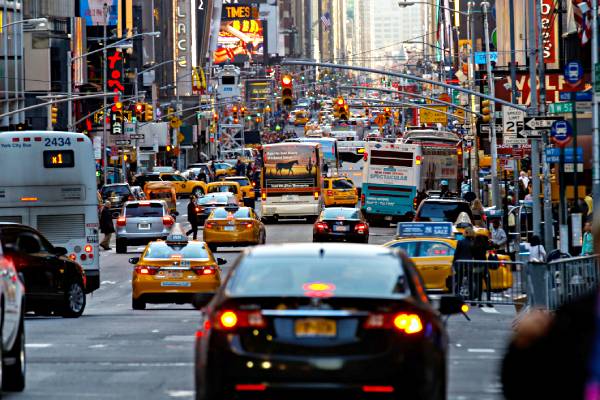Solving the Last-Mile Delivery Problem in New York City
How this simple, sustainable solution could ease the problem of double-parked delivery vehicles
If you've ever driven in New York City, you've likely experienced the frustration of being stuck behind a double-parked delivery vehicle. A potential solution, however, could lie in the creation of microhubs.
A recent report from Columbia University focusing on the environmental impact of e-commerce suggests that microhubs could utilize vacant office and retail space, or even repurpose outdoor unused areas into small distribution centers. These centers would facilitate last-mile delivery, easily accessible by electric bikes or walkers.
The report draws a comparison to Amazon's current operations in NYC, but proposes microhubs operating within controlled environments, thus eliminating the issue of trucks double-parked on the streets during package sorting.
Jordan Goldstein, the report’s project manager, said microhubs “seemed the most feasible” of all possible freight-traffic-reduction strategies because it works, is relatively inexpensive to implement, and cause the most disruption of the current, flawed system.
“It requires probably the least investment in enforcement for the city itself,” Goldstein told Streetsblog NYC. “Maybe you'll lose a little bit of efficiency, but these companies like Amazon already allocate in their budgets the money they're going to spend annually to pay double-parking tickets.”
The data behind double-parking
However, the report acknowledges that there is no singular solution: “Solutions to the double-parking problem will have to be multifaceted,” it reads, “there is not a one-fits-all solution that will effectively remove all delivery trucks without significant disruption to the status quo.”
Article Topics
Columbia University News & Resources
Solving the Last-Mile Delivery Problem in New York CityLatest in Transportation
Why Grocery Shoppers are Leaving Stores and Buying Their Food Online Unlocking Efficiency: Navigating Sea Freight Logistics in Supply Chain Management Is There a Next Generation of Truckers? Data Reveals Grim Outlook A Look at Baltimore’s Key Bridge Collapse—One Month Later Baltimore Continues Bridge Recovery With Opening of New Channel How Shippers Can Prep for Hurricane Season UPS Struggles in First Quarter With Steep Earnings Decline More Transportation










